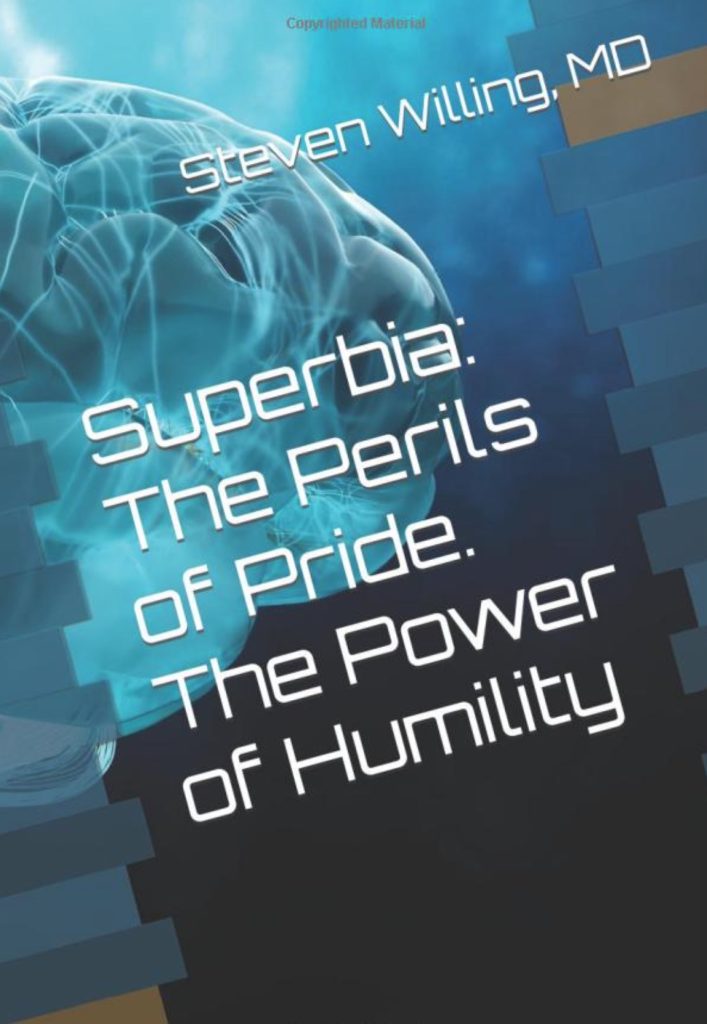
Review: “the Intelligence Trap: why smart people make dumb mistakes”
The Intelligence Trap: why smart people make dumb mistakes. David Robson, W. W. Norton, 2019
Western society reveres intelligence, or at least pretends to. A leading political figure boasts he’s “a very stable genius” – which, presumably, is superior to an unstable one. Yet no one stops to ask, “does it matter?” According to this fresh and fascinating analysis from British science writer David Robson, probably not. In fact, it could be a liability.
Anecdotal examples abound of brilliant people who believe crazy things. Arthur Conan Doyle, creator of the ruthlessly logical Sherlock Holmes, clung to a naive but unshakeable faith in spiritualism and fairies. Nobel prize winner Kary Mullis recounts his abduction by a glowing alien raccoon, when not engaged promoting astrology and AIDS denialism. The name most synonymous with genius – Albert Einstein – saw the hope of mankind in Vladimir Lenin and frittered away the final decades of his life stubbornly rejecting quantum theory. The tendency of Nobel prize winners to go of the rails is so commonplace that science writers coined “Nobel disease” as a term of derision.
Among the higher ranks of intelligentsia, we learn that:
- College graduates are more likely to believe in ESP and “psychic healing.”
- People with IQ’s over 140 are more likely to max out on their credit.
- High IQ individuals consume more alcohol and are more likely to smoke or take illegal drugs.
By way of explanation, research has found that highly intelligent and educated people are much more confident, and this confidence makes them less likely to doubt their opinions or change their minds. Rather than pursuing truth wherever it may be found, smarter people channel their energy toward arguing and reinforcing their preexisting opinions.
Is there hope for the genius? After reviewing current evidence and theories concerning human cognition, particularly the influence of emotions and effects of overconfidence, Robson identifies a series of empirically validated practices by which one can mature beyond mere intelligence to wisdom. These include:
- Emotional awareness and regulation – learning to recognize when emotions influence opinions, and how to override them when necessary.
- Cognitive reflection – the ability to question one’s own intuitions and assumptions.
- Actively open-minded thinking – allowing for other possibilities, and seriously considering opposing viewpoints.
- Having a growth mindset – never resting on one’s credentials but committing to a lifetime of learning and improvement.
- Intellectual humility – accepting that one’s knowledge and abilities are limited.
The third section of the book zeroes in on sound practices of learning and how principles like curiosity, conscientiousness, and emotional intelligence are at least as, if not more, important than intellectual intelligence. Robson relates a number of evidence-based practices shown to facilitate learning – material that should be of keen interest to teachers and learners alike.
A final section extends beyond the individual to apply these principles to group dynamics and the means of avoiding catastrophic group decisions.
This work should be of profound interest to Christians. Without ever quoting the Bible, Robson lays out an elegant model for the Biblical principle of wisdom. His explanations account for why both brilliant believers and brilliant skeptics are prone to overconfidence and equally capable of tremendous self-deceit.
In summary, David Robson has delivered a provocative, entertaining, and timely contribution to the public square. This book could serve as a life manual for those afflicted with a very high IQ. It should be an eye-opener for anyone whose life or profession concerns issues of intelligence. For the average person, it offers two benefits worth the price of the book. First, do not be intimidated by intelligence. Outside their own narrow area of expertise, geniuses are no more trustworthy than anyone else. Second, what matters is not intelligence, but wisdom. And wisdom is within reach of anyone. However, wisdom does not emerge from a vacuum. It matures over time through consistent practice of the principles described within.
Five stars. Buy or borrow it, read it, then live it. You will be much the wiser.
Review of the UK edition. The US edition will be released on August 6, 2019 by WW Norton.
[/pl_text]
[/pl_col]
[/pl_row]
Tags In
1 Comment
Leave a Reply Cancel reply
This site uses Akismet to reduce spam. Learn how your comment data is processed.
Steven Willing MD, MBA
Latest posts
Satan’s Original Playbook: Four Lies that Still Work.
Superbia Study Guide and New Platform
Getting Started with Prayer Mate: A Simple Guide
The USAID Imbroglio

The accusations of money laundering and extremist ties are serious. Has an independent audit confirmed these claims?
Whoever you are, Thank you for visiting our site. I appreciate your comments, which have nothing to do with the…
I did 5 years as a Chemical engineering consultant to the Dept of Energy's Strategic Petroleum Reserve (SPR). In this…
[…] Western nations, the marriage rate has been steadily declining while the age of first marriage has been steadily trending…
Thank you dear brother with a well researched and well written article to the glory of God.

I am fascinated by this topic–especially why some very intelligent people dogmatically hold on to beliefs, even though they are proved wrong. I have a cousin on the Stewart side of my family, a former high school teacher (history, I think) who, in his original genealogy research found a Nathaniel Stewart he thought was our gggg grandfather. He clings to this belief even though our DNA does not match Nathaniel’s line. The same thing happened on another family line. A cousin who worked with the Tulsa Sheriff’s office in locating people and who was also very good at genealogy research. She found a likely Rogers ancestor whom the DNA does not support. Maybe it is just the amount of time and effort one invests in preexisting opinions that makes them hard to let go of.